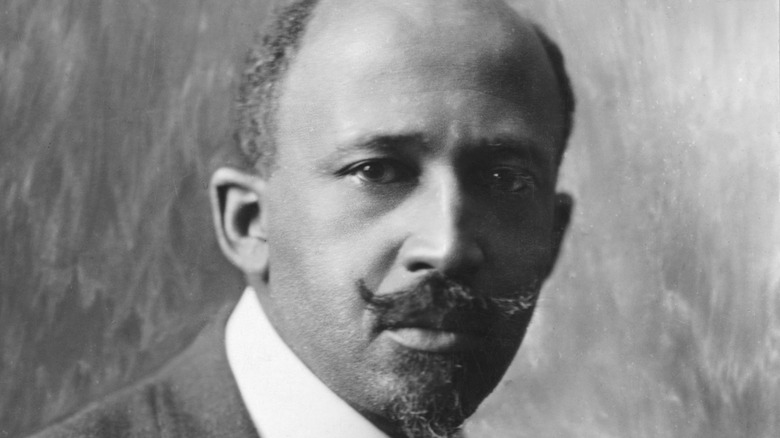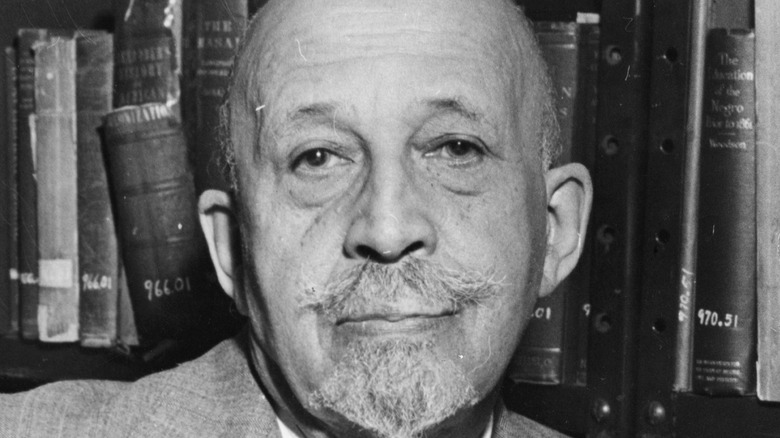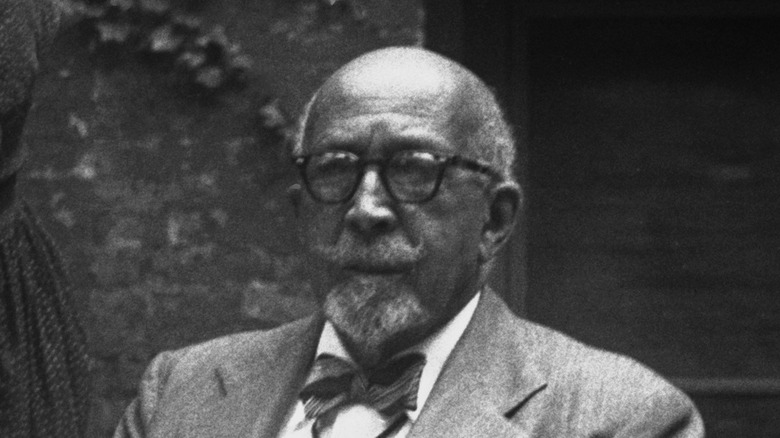The Truth About W.E.B. Du Bois' Financial Problems Late In Life
The intellectual great and author W.E.B. Du Bois was a prominent Black American figure during the early 19th century. He, along with several other historical people, are noted as the founders of the very first movements for Black civil rights in America.
Du Bois was known for many things. He famously quarreled with other Black leaders at the time, such as Booker T. Washington and Marcus Garvey. Additionally, he introduced the concept of the Talented Tenth — an idea (and essay) that Du Bois fervently pushed, which encouraged the highly educated and brightest of the Black community to lift up those who didn't have the same opportunities. The famous text began with these recognizable words, quoted by Teaching American History: "The Negro race, like all races, is going to be saved by its exceptional men. The problem of education, then, among Negroes must first of all deal with the Talented Tenth; it is the problem of developing the Best of this race that they may guide the Mass away from the contamination and death of the Worst, in their own and other races."
W.E.B. Du Bois' accomplishments
W.E.B. Du Bois was an accomplished author, among many things. He wrote the now well-known book "The Souls of Black Folk," which included his famous essay that criticized Booker T. Washington's beliefs. He also was one of the leading co-founders of what became known as the National Association for the Advancement of Colored People, or NAACP. While there, Du Bois became the editor of the organization's magazine called The Crisis. The publication rose in popularity and was under his leadership for nearly a quarter of a century, per Britannica.
For most of his life, Du Bois championed civil rights issues, and he had also taught as a professor at Atlanta University. There, he headed the school's sociology department (via Georgia Encyclopedia). He made enough money to travel and write books, along with being a famous voice and face. But as he aged, he'd have money issues that would even cost the production of one of his biggest, lifelong projects.
Financial troubles shatter Du Bois' big dream
The Encyclopedia Africana was the brainchild of W.E.B. Du Bois. It was first conceived in 1908, per History. He wanted to create an encyclopedia that highlighted the African Diaspora and the achievements of Black people around the world.
However, he needed major cash for the project. And it proved to be an uphill battle to a door that was constantly getting shut in Du Bois' face. He had temporarily put the project to the side as he worked with the NAACP, authoring books, and teaching. Not long after resigning from his post as The Crisis editor in 1934 (due to his shift in political beliefs, via The New York Times), he hit another roadblock. Despite having the vocal backing from intellectual friends and scholars, he didn't have the financial backing or a job, per The New York Times. Further, extrapolating his dire struggle in getting the project off the ground, the financial collapse of the Great Depression held it back some more. Additionally, his seemingly changing political views and support of communism left him with less support. So much that even other versions of an Encyclopedia for Black people didn't earn Du Bois any invitations. He also didn't have the money himself to launch the series, and the money that was given for Encyclopedia Africana was merely half.
He reached a point where he knew it would never happen and moved to Ghana in 1960. Du Bois would die just a few short years later on August 27, 1963, according to Biography.


